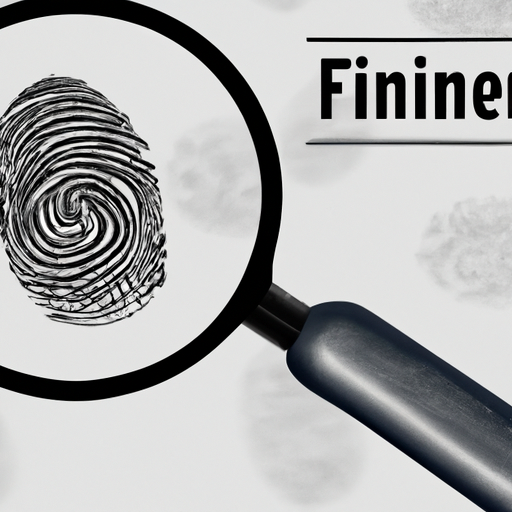Background checks regulations are an essential aspect of the hiring process for businesses. With the increasing importance of maintaining a safe and secure work environment, it is crucial for companies to conduct thorough background checks on potential employees. These regulations not only protect businesses from potential liability but also ensure that they are making informed and responsible decisions when it comes to bringing new individuals into their organization. In this article, we will explore the key aspects of background checks regulations, including their purpose, legal requirements, and best practices. Understanding these regulations is vital for businesses to navigate the complex landscape of hiring in a lawful and effective manner.
Understanding Background Checks Regulations
Background checks are an essential part of the hiring process for employers seeking to make informed decisions regarding potential employees. These checks provide crucial information about an individual’s criminal history, employment history, education, and other relevant factors. However, employers must navigate a complex landscape of regulations to ensure they comply with legal requirements and avoid potential legal liabilities.
1.1 Purpose of Background Checks Regulations
The purpose of background checks regulations is to protect the rights of individuals while allowing employers to make informed hiring decisions. These regulations aim to strike a balance between preventing discrimination and ensuring workplace safety. By implementing background checks regulations, employers can mitigate potential risks, such as negligent hiring claims, workplace violence incidents, and damage to their reputation.
1.2 Legal Framework for Background Checks
The legal framework for background checks is primarily governed by federal and state laws. At the federal level, the Fair Credit Reporting Act (FCRA) and the Equal Employment Opportunity Commission (EEOC) provide guidelines and regulations for employers conducting background checks. Additionally, each state may have its own specific laws and regulations that must be considered.
1.3 Types of Background Checks
There are various types of background checks that employers may conduct, depending on their specific needs and the nature of the position being filled. These checks may include criminal history checks, employment verification, education verification, credit history checks, and reference checks. Different types of background checks may be more relevant for certain industries or positions, such as those involving financial responsibilities or working with vulnerable populations.
1.4 Importance of Compliance with Background Checks Regulations
Compliance with background checks regulations is crucial for employers to avoid legal liabilities and potential discrimination claims. Failing to adhere to these regulations can result in penalties, fines, lawsuits, and damage to a company’s reputation. It is essential for employers to understand and comply with the legal requirements imposed by federal, state, and international background checks regulations.
2. Key Regulations for Background Checks
To ensure compliance with background checks regulations, employers must be familiar with the key regulations that govern this process. Below are some of the most important regulations that employers should consider:
2.1 Fair Credit Reporting Act (FCRA)
The Fair Credit Reporting Act (FCRA) is a federal law that regulates the collection, dissemination, and use of consumer information, including background checks. The FCRA imposes specific requirements on employers who use third-party consumer reporting agencies to obtain background checks. These requirements include obtaining proper consent from the individual, providing disclosure notices, and following specific procedures in the event of adverse action based on the background check.
2.2 Equal Employment Opportunity Commission (EEOC) Guidelines
The Equal Employment Opportunity Commission (EEOC) provides guidelines to employers on how to conduct background checks without discriminating against protected classes. The EEOC advises employers to consider the nature of the offense, the time elapsed since the offense, and the job-relatedness of the offense when making hiring decisions based on criminal records. Employers must be aware of these guidelines to ensure they do not engage in discriminatory practices during the hiring process.
2.3 Ban the Box Laws
Ban the Box laws refer to legislation that prohibits employers from requesting information about an applicant’s criminal history on job applications before a certain stage of the hiring process. These laws aim to give individuals with criminal records a fair chance at employment by delaying inquiries into their criminal history until later in the hiring process. Ban the Box laws vary by state and locality, and employers must stay informed and comply with these regulations.

2.4 State-Specific Regulations
In addition to federal regulations, employers must also consider state-specific regulations regarding background checks. Each state may have its own requirements and limitations on the use of background checks in the hiring process. It is crucial for employers to understand the specific regulations of the states in which they operate or conduct business to ensure compliance.
2.5 International Background Checks Regulations
For employers conducting background checks on individuals outside the United States, it is important to understand and comply with international background checks regulations. Different countries have varying laws regarding data privacy, consent, and the collection and use of personal information. It is crucial for employers to navigate these regulations when conducting background checks on individuals in global markets.
3. Understanding the Fair Credit Reporting Act (FCRA)
The Fair Credit Reporting Act (FCRA) is a key federal law that employers must understand and comply with when conducting background checks. The FCRA regulates the use of consumer reports, which include background checks, and imposes specific requirements on employers.
3.1 Overview of FCRA
The FCRA sets forth guidelines and requirements for employers who use third-party consumer reporting agencies to obtain background checks. It aims to ensure the accuracy and privacy of consumer information and protect individuals from unfair treatment based on inaccurate or outdated information.
3.2 Compliance Requirements under FCRA
To comply with the FCRA, employers must obtain proper consent from individuals before obtaining a background check and provide clear disclosure notices regarding the intent and scope of the background check. Employers must also follow specific procedures in the event they take adverse action against an individual based on the background check.
3.3 Permissible Purpose for Obtaining Consumer Reports
Under the FCRA, employers must have a permissible purpose for obtaining consumer reports, such as employment screening or making credit decisions. It is essential for employers to ensure that their use of consumer reports complies with the FCRA’s requirements regarding permissible purpose.
3.4 Disclosure and Authorization Requirements
The FCRA mandates that employers provide clear and conspicuous disclosure to individuals before obtaining a background check. This disclosure must inform the individual that a background check will be conducted and must obtain the individual’s consent in writing. Employers must also provide a summary of rights under the FCRA to the individual.
3.5 Adverse Action Procedures under FCRA
In the event an employer takes adverse action against an individual based on the information obtained from a background check, the FCRA requires that certain procedures be followed. These procedures include providing the individual with a pre-adverse action notice, a copy of the background check report, and an opportunity to dispute the information before taking final adverse action.
4. Equal Employment Opportunity Commission (EEOC) Guidelines
The Equal Employment Opportunity Commission (EEOC) provides guidelines to employers on how to conduct background checks without violating anti-discrimination laws. It is important for employers to understand and adhere to these guidelines to avoid discriminatory practices during the hiring process.

4.1 EEOC Guidelines on Background Checks
The EEOC guidelines advise employers to consider various factors when using background checks, including the nature and gravity of the offense, the time that has passed since the offense, and the nature of the job being sought. Employers must conduct an individualized assessment to determine if the offense is job-related and consistent with business necessity.
4.2 Employer Considerations for Avoiding Discrimination
Employers should be mindful of potential disparate impact on protected classes when utilizing background checks. It is important to ensure that the use of background checks is job-related and consistent with business necessity. Employers should also consider providing applicants with an opportunity to explain their criminal history before making a final hiring decision.
4.3 Individualized Assessment and Disparate Impact
The EEOC emphasizes the importance of conducting an individualized assessment when evaluating an applicant’s criminal history. This assessment entails considering the nature and severity of the offense, the time that has passed since the offense, and its relationship to the job being sought. By conducting an individualized assessment, employers can avoid potential disparate impact on protected classes.
4.4 Recordkeeping and Documentation Requirements
To ensure compliance with EEOC guidelines, employers should maintain proper records and documentation throughout the background check process. This includes records of the individualized assessment, any communications with the applicant regarding their criminal history, and the justification for the hiring decision. Adequate recordkeeping is crucial in the event of an EEOC investigation or potential legal challenges.
5. Ban the Box Laws
Ban the Box laws refer to legislation that restricts employers from asking about an applicant’s criminal history on job applications. Instead, these laws aim to delay inquiries into an applicant’s criminal history until later in the hiring process.
5.1 Purpose and Scope of Ban the Box Laws
The purpose of Ban the Box laws is to provide individuals with criminal records a fair chance at employment. By removing questions about criminal history from job applications, these laws enable applicants to showcase their qualifications and skills before potential bias based on their criminal history is introduced into the hiring process.
5.2 State and Local Variations in Ban the Box Laws
Ban the Box laws vary by state and locality, with each jurisdiction having its own specific requirements and limitations. Some jurisdictions prohibit employers from inquiring about an individual’s criminal history until after a conditional job offer has been extended, while others may have additional limitations or exceptions. It is crucial for employers to understand and comply with the specific Ban the Box laws applicable to their jurisdiction.
5.3 Compliance Obligations for Employers
To comply with Ban the Box laws, employers must review their job applications and remove any inquiries into an applicant’s criminal history. Additionally, employers must be mindful of the timing of background checks and ensure that any conditional job offers are contingent upon the results of the background check. Employers should also familiarize themselves with any specific obligations imposed by local Ban the Box laws.
5.4 Impact on Hiring and Screening Processes
Ban the Box laws can significantly impact an employer’s hiring and screening processes. Employers must make adjustments to their recruitment and selection procedures to comply with these laws. This may involve revising job applications, implementing new policies and procedures, and training HR personnel to ensure compliance. Employers should carefully consider the potential impact on their hiring strategies and make any necessary adjustments.
6. State-Specific Regulations
In addition to federal regulations, employers must also be aware of state-specific regulations regarding background checks. Each state may have its own laws and restrictions on the use of background checks during the hiring process.
6.1 Overview of State-Specific Background Check Laws
State-specific background check laws vary in their requirements, limitations, and procedures. Some states may have additional restrictions on the use of certain types of information in hiring decisions, such as credit history or arrest records. It is crucial for employers to understand and comply with these state-specific laws to ensure they are conducting background checks in accordance with the applicable regulations.
6.2 Notable State-Specific Regulations
Certain states have implemented notable regulations regarding background checks. For example, some states have restricted the use of credit history information in hiring decisions unless it is directly relevant to the position. Other states have limitations on considering arrests or convictions that have been expunged or sealed. Employers should be familiar with the specific regulations of the states in which they operate to ensure compliance.
6.3 Implications for Multi-State Employers
For employers operating in multiple states, complying with state-specific background check laws can be complex. Employers must navigate the varying requirements and limitations imposed by each state. It is important for multi-state employers to develop policies and procedures that strike a balance between complying with the individual state laws and maintaining consistency and efficiency in their hiring practices.
6.4 Compliance with State and Federal Regulations
Employers conducting background checks must ensure compliance with both state and federal regulations. It is essential to understand the requirements and limitations of both levels of regulation to avoid legal liabilities and discriminatory practices. Employers should consult with legal professionals to ensure they are fully compliant with both state and federal background checks regulations.
7. International Background Checks Regulations
For employers conducting background checks on individuals outside the United States, it is important to understand and comply with international background checks regulations. This involves considerations such as cross-border employment screening challenges, data privacy laws, and compliance with international regulations.
7.1 Cross-Border Employment Screening Challenges
Conducting background checks on individuals outside the United States presents unique challenges. Differences in legal systems, data privacy laws, and cultural norms can complicate the screening process. Employers must navigate these challenges to ensure compliance and obtain accurate and reliable information.
7.2 Data Privacy Laws and Consent Requirements
Data privacy laws vary from country to country and impose restrictions on the collection, use, and transfer of personal information. Employers must comply with these laws when conducting international background checks. In addition, obtaining proper consent from individuals is crucial to ensure compliance with international regulations.

7.3 Compliance with International Regulations
To comply with international regulations, employers must conduct background checks in accordance with the applicable laws of the countries involved. This may involve partnering with local screening providers, understanding local data privacy laws, and ensuring the proper transfer of data across borders. Employers should seek legal guidance to ensure compliance with international regulations.
7.4 Hiring and Background Screening in Global Markets
As businesses increasingly operate in global markets, the need for international background checks becomes more prevalent. Employers must be mindful of the legal and cultural differences when conducting background checks in different countries. By understanding and complying with international regulations, employers can make informed hiring decisions while mitigating potential risks and legal liabilities.
8. Best Practices for Background Checks Compliance
To ensure compliance with background checks regulations, employers should implement best practices that encompass all aspects of the background check process. Below are some essential best practices to consider:
8.1 Establishing a Compliant Background Checks Policy
Employers should develop a comprehensive background checks policy that outlines the purpose, scope, and procedures for conducting background checks. The policy should address compliance with federal, state, and international regulations and incorporate guidelines from relevant agencies, such as the FCRA and the EEOC.
8.2 Designing Consistent Screening Procedures
Employers should establish consistent screening procedures that apply to all potential employees in similar positions. This ensures fairness and minimizes the risk of discriminatory practices. Consistent screening procedures should consider relevant factors for the position, such as required qualifications, job-relatedness of offenses, and industry-specific requirements.
8.3 Adhering to Notice and Consent Requirements
Proper notice and consent are essential for compliance with background checks regulations. Employers should provide clear and conspicuous disclosure to individuals before obtaining a background check and obtain written consent. Additionally, employers should inform individuals of their rights under applicable laws and provide them an opportunity to dispute or explain any negative information uncovered during the background check process.
8.4 Proper Handling of Criminal Records Information
Employers must handle criminal records information with care and in compliance with applicable regulations. This includes understanding the limitations on the use of certain types of criminal records, such as expunged or sealed records, and ensuring that decisions based on criminal records are consistent with business necessity.
8.5 Training and Educating HR Personnel
Proper training and education for HR personnel responsible for conducting background checks are crucial for compliance. HR personnel should be knowledgeable about the relevant regulations, the company’s background checks policy, and best practices for conducting background checks. Ongoing training and education ensure that HR personnel are up-to-date on changing regulations and maintain compliance.
9. Consequences of Non-Compliance
Non-compliance with background checks regulations can result in severe consequences for employers. It is crucial to understand the potential legal penalties, civil liabilities, and business impacts associated with non-compliance.
9.1 Legal Penalties and Fines
Employers who fail to comply with background checks regulations may face legal penalties and fines imposed by government agencies. Violations of the FCRA, EEOC guidelines, or state-specific regulations can result in substantial fines and penalties. These penalties can significantly impact a business’s finances and reputation.
9.2 Civil Liabilities and Lawsuits
Non-compliance with background checks regulations can expose employers to civil liabilities and lawsuits. Individuals can file lawsuits alleging violations of their rights under anti-discrimination laws or privacy laws. These lawsuits can result in costly legal battles, settlements, or damage awards, negatively impacting a business’s financial stability and reputation.
9.3 Damage to Business Reputation
Failure to comply with background checks regulations can damage a business’s reputation. Public perception of a company’s commitment to fair hiring practices and protecting employee rights is crucial for maintaining trust and attracting top talent. Non-compliance can lead to negative publicity, loss of customer trust, and difficulty in recruiting and retaining quality employees.
9.4 Impact on Hiring and Talent Acquisition
Non-compliance with background checks regulations can have significant impacts on an employer’s hiring and talent acquisition efforts. Failure to conduct proper background checks can result in the hiring of individuals who may pose risks to the company or its employees. Additionally, non-compliance with regulations can deter qualified candidates from considering employment with the organization, impacting talent acquisition efforts.
10. Frequently Asked Questions (FAQs)
To provide further clarification on background checks regulations, here are some frequently asked questions and brief answers:
10.1 What is the purpose of background checks?
The purpose of background checks is to provide employers with relevant information about an individual’s criminal history, employment history, education, and other factors to make informed hiring decisions and mitigate risks.
10.2 Can employers conduct background checks without consent?
Employers must obtain proper consent from individuals before conducting background checks. Consent must be obtained in writing and provide clear disclosure regarding the intent and scope of the background check.
10.3 What if a background check reveals negative information?
If a background check reveals negative information, employers must follow specific procedures, such as providing a pre-adverse action notice, the background check report, and an opportunity for the individual to dispute the information before taking adverse action.
10.4 Are there restrictions on using criminal records in hiring decisions?
The EEOC guidelines advise employers to consider various factors and conduct an individualized assessment when using criminal records in hiring decisions. The nature of the offense, the time elapsed since the offense, and the job-relatedness of the offense should be considered to avoid potential discrimination.
10.5 How often should employers update their background check policies?
Employers should regularly review and update their background check policies to ensure compliance with changing regulations and best practices. It is recommended to review and update policies at least once a year or whenever significant regulatory changes occur.



